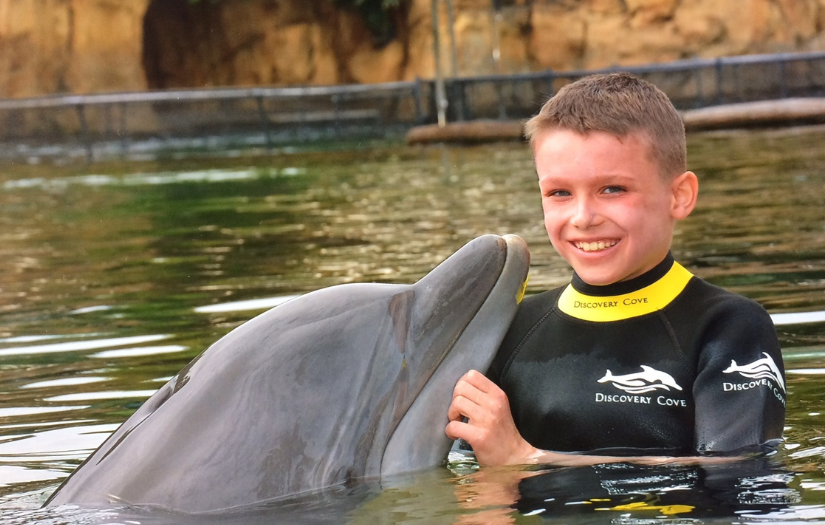At the age of four months Sam had his first major allergic reaction. I had been breastfeeding him up until that point, but decided to give him some formula as he didn’t seem to be getting enough breast milk. He had an anaphylactic reaction to the formula which included vomiting, swelling of the face, noisy breathing and was rushed to the accident and emergency unit. Following this we avoided milk and milk products. We were given no additional support from the allergy department in the local hospital in terms of how to manage this life threatening food allergy – not even an Adrenaline Auto-Injector!
It was not until Sam was admitted to GOSH with the eczema that they then referred him to an allergist. He was seen at St. Thomas’s paediatric allergy department at the age of one. Following this appointment we discovered he was allergic to milk, egg, nuts and a variety of fruits and some vegetables. We left the appointment with emergency medication which we have been carrying around with us ever since.
Sam also has asthma, and between the ages of one and four was admitted several times to hospital via the emergency department.
At the age of five years, Sam started having trouble with his eyes. They became very red, itchy and swollen. He started to complain that he couldn’t see and as the condition worsened it would take him 30-45mins to be able to open his eyes in the mornings. He would often be late for school and at times would not be able to attend school as his eyes would not open. I was given the message by the GP that this was hay fever. I even remember serving his dinner up to him and him sitting at the table in great distress as he was unable to open his eyes and he ate the whole meal with his eyes shut. I recall getting an emergency GP appointment that very evening only to be given some eye drops for hay fever.
I also noticed him participating in activities with his eyes partially closed – activities like riding his bike and running in the school sports day. I knew that there was something more serious going on with his eyes and as he had a dermatology appointment coming up I thought I would ask their opinion. They clearly recognised there was a problem and advised us to take him to the emergency eye unit. It was there that he was diagnosed with Vernal Keratoconjunctivitis (a type of allergic eye disease) and as it had been left undiagnosed and no appropriate treatment given he had developed bilateral corneal ulcers. We continue to treat this condition under the expert guidance of Moorfields Eye Hospital. He remains on two to three different eye drops twice daily.
Sam’s allergic conditions have had a massive effect on our entire family for the past nine years. It affects where we eat out, where we go on holiday, the type of holiday we have (we always have to cook our own food), childcare (we can only leave Sam with trusted family members who have been taught how to administer his treatments).
It has also had a negative effect on our daughter whom we have been unable to spend as much time with over the years so she has missed out on our support throughout her development.
Trips to the hospitals in London are also extremely time consuming and expensive. Our journey to Moorfields eye hospital as an example takes one and a half hours each way and involves a whole day off school for Sam. During ‘flare ups’, which are worse in the grass pollen season, we have had to attend Moorfields weekly at times. Our evenings also consist of applying treatments (eczema creams, eye drops, nasal spray, preventative asthma inhaler, house dust mite immunotherapy and grass pollen immunotherapy) so we do not have much time to relax.

 Helpline
Helpline

